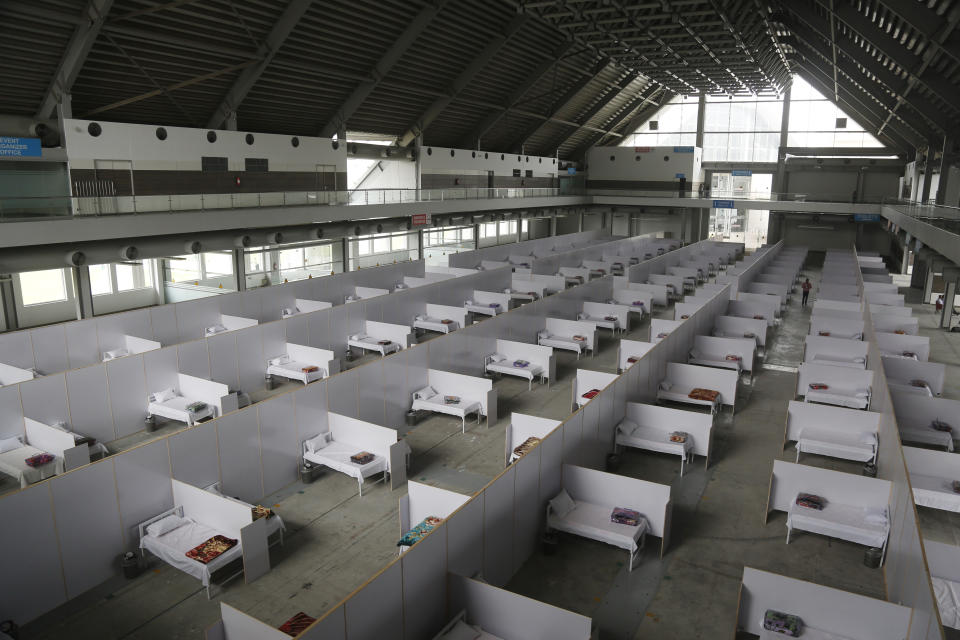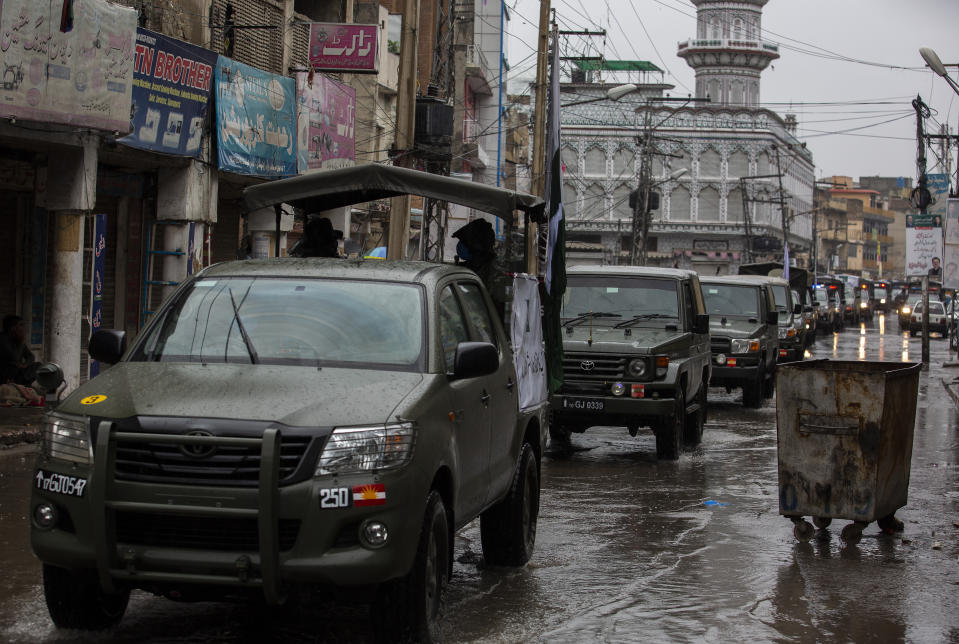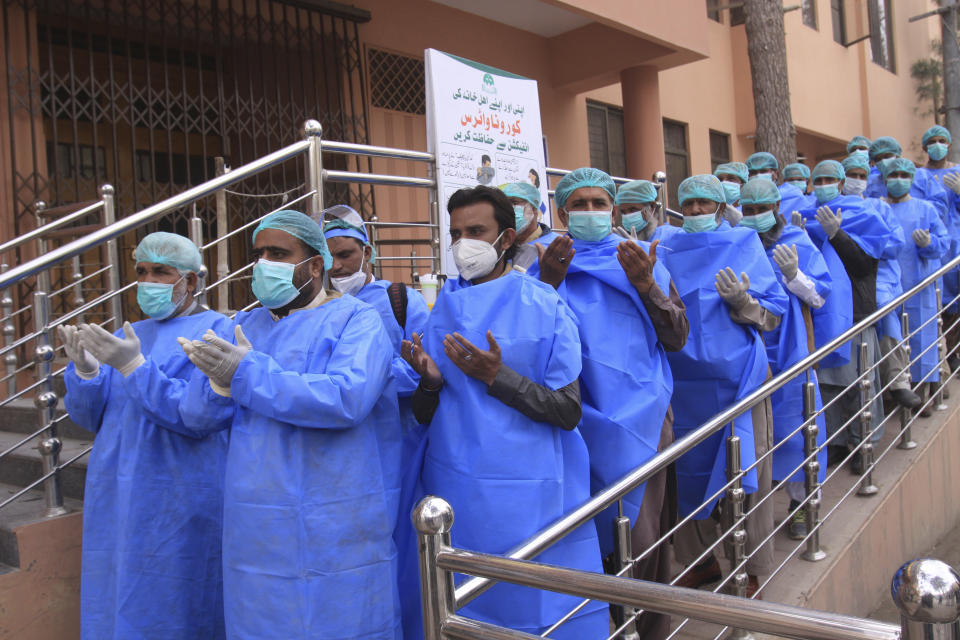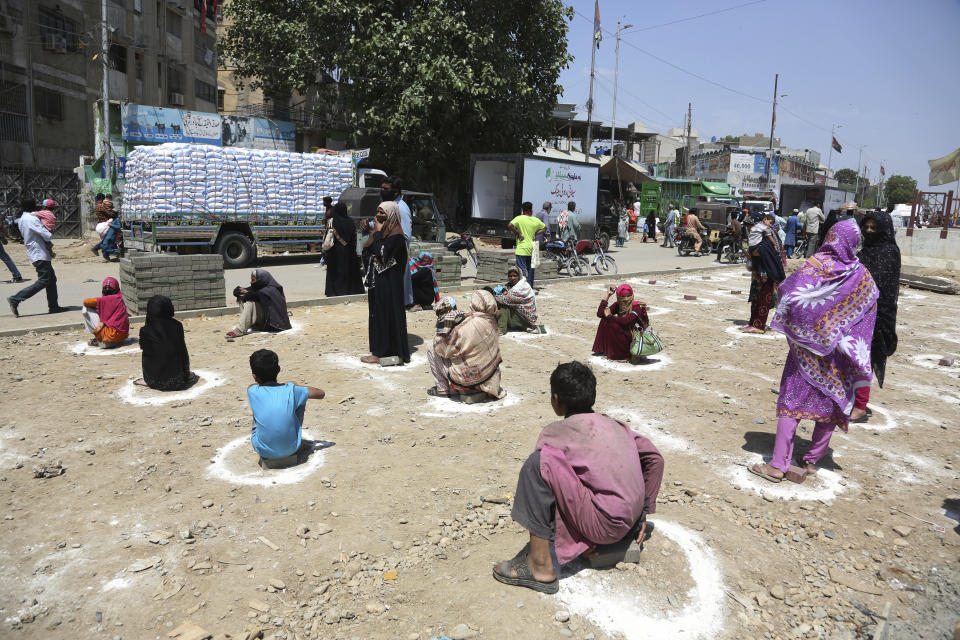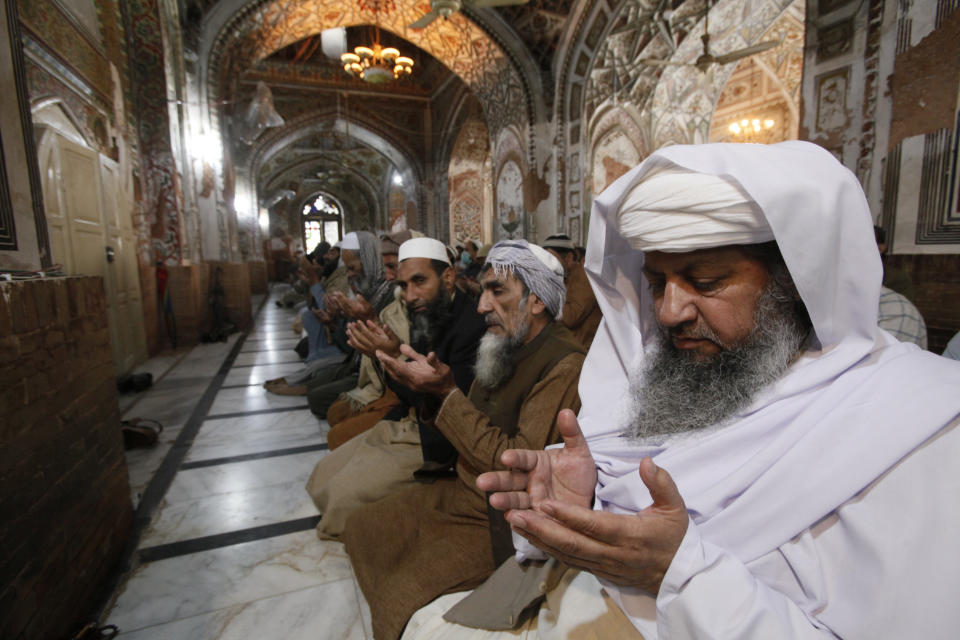China sends medical aid to Pakistan to combat virus outbreak
ISLAMABAD (AP) — China sent a plane loaded with medical personnel and supplies Saturday to help Pakistan fight the spread of the coronavirus in one of the world's most populous nations.
Across the Middle East and elsewhere, the outbreak has raised concerns that health systems strapped by multiple wars, refugee crises and unstable economies won't be able to handle the growing number of cases. In Iran, which is battling the worst outbreak in the region, state TV said Saturday another 139 people had died from the virus. That pushed the total fatalities in Iran to 2,517 amid 35,408 confirmed cases.
China has sought to portray itself as a global leader in the fight against the outbreak, which began a few months ago in its Wuhan province. The plane carrying aid to Pakistan was met at the capital's airport by Foreign Minister Shah Mahmood Qureishi, who greeted the arriving Chinese doctors and officials.
China had previously sent ventilators and masks to Pakistan, a key link in China's ambitious multi-billion-dollar One Road Project linking south and central Asia with China. China is also a key military supplier for nuclear-armed Pakistan, having supplied the country with missiles capable of carrying atomic weapons.
Pakistan, with a population of 220 million, has 1,408 confirmed cases of the coronavirus, including 11 deaths from the illness it causes, COVID-19. Most of the infected people have been travelers returning from neighboring Iran.
Most people infected by the virus only experience mild symptoms, such as fever and cough, and recover within a few weeks. But the virus can cause severe respiratory illness and death, particularly in older patients or those with underlying health problems.
Pakistan has closed its borders with both Iran and Afghanistan, but has come under widespread criticism for its initial lax response to the virus.
Even as the pandemic spread to the country, Pakistani authorities allowed tens of thousands of Islamic clerics from around the world to congregate for three days outside the eastern city of Lahore. Some 200 of the clerics are now quarantined at the site of the gathering, a sprawling compound belonging to an Islamic missionaries group, Tableeghi Jamaat.
Many of the visiting clerics at the conference returned to their home countries, some of them carrying the coronavirus. The first two reported cases in the Gaza Strip attended the three-day gathering in Pakistan, and are now under quarantine in Gaza. Other linked cases have emerged elsewhere in the Middle East and Central Asia.
Pakistan Prime Minister Imran Khan has refused to impose a countrywide lockdown saying it would devastate the country's poor, but ordered non-essential businesses closed, including restaurants, money changers and wedding halls.
As of Saturday, the government still had not ordered mosques closed nationwide, instead relying on recommendations to worshippers not to gather for weekly Friday prayers. Pakistani officials are reluctant to defy local hard-line Islamic leaders, who can whip up mobs to protest any perceived insults to religion. Some of these clerics have taken to social media to urge the faithful to fill the mosques, saying it is their religious obligation.
Pakistan's federal health authorities say the outbreak is so far concentrated in Punjab province, with 490 confirmed cases there, and Sindh province, which has 457 confirmed infections. Other cases are spread throughout several other regions, including the capital, Islamabad.
Health authorities in the country's northwestern Khyber Pakhtunkhwa province reported one additional death Saturday, a woman in the district of Dir. Ajmal Wazir, a spokesman for the provincial government, said the woman fell sick after returning from a pilgrimage to Saudi Arabia, before dying in a government hospital where she tested positive for the coronavirus.
In Iran, officials have repeatedly insisted they have the outbreak under control, despite concerns it could overwhelm the country's health facilities.
Iran's government has faced widespread criticism for not acting faster to contain the virus. Only in recent days have authorities ordered nonessential businesses to close and banned travel between cities — long after other nations in the region imposed sweeping lockdowns.
In Egypt the country's chief prosecutor warned that anyone convicted of spreading “fake news and rumors” about the coronavirus could be fined or sentenced to up to five years in prison.
Public prosecutor Hamada el-Sawy's statement came just days after Egypt expelled a correspondent for The Guardian newspaper over a report citing a study that challenged the official count of coronavirus cases in the Arab world’s most populous country.
Egypt's Health Ministry has confirmed 576 cases of the virus and reported six additional fatalities Saturday, bringing the number of dead to 36.
U.S. Ambassador to Libya Richard Norland on Saturday urged the country's warring groups to suspend fighting in and around the capital, Tripoli, as “an absolute necessity" to allow public health officials across the divided country to contain the epidemic.
Libya's health system is near the point of collapse after years of civil war. It has so far reported three confirmed cases of coronavirus.
Authorities in Gaza, which has been under an Israeli and Egyptian blockade since the Hamas militant group seized power there in 2007, have reported nine confirmed cases.
Gaza's health care infrastructure has been severely eroded by years of conflict and isolation. A major outbreak in the territory, which is home to more than 2 million Palestinians, could be extremely difficult to contain.
Organizers of weekly demonstrations along the Gaza-Israel frontier said they would cancel a rally that was scheduled for next week to abide by guidelines to avoid the spread of the virus. Khaled al-Batsh, head of the Great March of Return committee, said the rally was to mark the second anniversary of the protest movement.
___
Associated Press writers Sarah El Deeb in Beirut, Fares Akram in Gaza and Samy Magdy in Cairo contributed to this report.

 Yahoo News
Yahoo News 